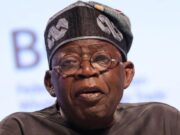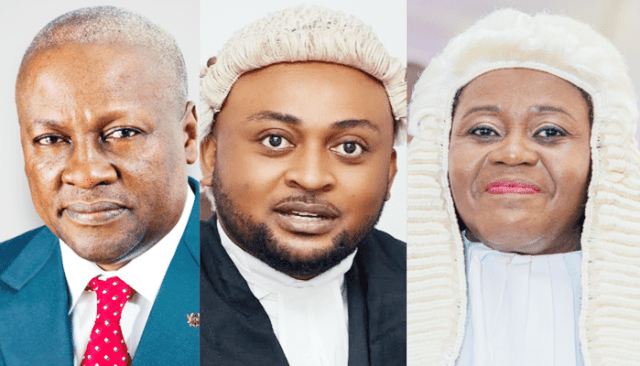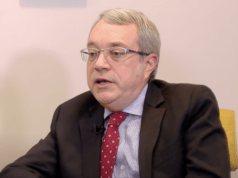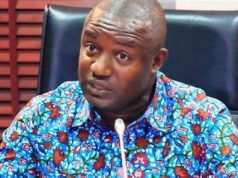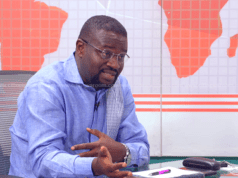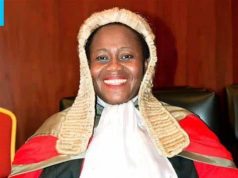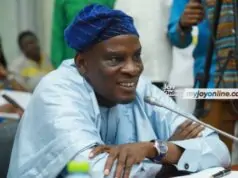Two Ghanaian citizens, Messrs Vincent Ekow Assafuah, Member of Parliament for Old Tafo; and Ebenezer Osei-Owusu, have filed two separate injunction applications at the Supreme Court seeking to halt the ongoing processes initiated by President John Dramani Mahama for the potential removal of the Chief Justice, Justice Gertrude Araba Sackey Torkornoo.
The applicants contended that the President’s action violates the Chief Justice’s constitutional right to a fair hearing, as she has neither been served with the petitions nor been given an opportunity to respond before the process commenced.
The two are also challenging the constitutionality of the President’s decision to forward three petitions for the Chief Justice’s removal to the Council of State without first notifying her.
They argued that this move contravenes Article 146 of the 1992 Constitution and a landmark Supreme Court ruling in Agyei Twum v. Attorney-General & Akwetey (2005-2006), which affirms that a judge facing removal must be given the chance to respond before any preliminary determination is made.
Osei-Owusu’s Injunction
In his statement of claim, Osei-Owusu asserted, “the President’s decision to make public the receipt and transmission of the petitions without first furnishing the Chief Justice with copies and offering her a hearing is unconstitutional and violates her fundamental rights.”
The injunction application, scheduled for hearing at the Supreme Court on Wednesday, April 2, 2025, seeks to restrain the President and the Council of State from proceeding with the removal process until the substantive case is determined.
Relief sought by Osei-Owusu
The applicant is seeking seven reliefs from the Supreme Court, including an injunction to stop the President from consulting the Council of State on the matter. Specifically, he wants a declaration that the President cannot determine whether a prima facie case exists against the Chief Justice without first serving her with copies of the petitions and allowing her to comment on them.
Furthermore, Osei-Owusu wants the court to declare as unconstitutional the President’s decision to forward the petitions to the Council of State without prior notice to the Chief Justice.
He also seeks an order restraining the President from constituting a committee to investigate the petitions unless the Chief Justice has been given a fair opportunity to respond.
Additionally, he is requesting an order to recall or set aside the petitions sent to the Council of State and any other reliefs the court deems appropriate to protect the Chief Justice’s rights.
Assafuah’s Injunction application
The Old Tafo MP, Mr. Assafuah, being represented by former Attorney-General and Minister for Justice, Godfred Yeboah Dame.
also filed the injunction application, urging the apex court to declare the consultation processes triggered by the President as null and void and of no effect.
In his affidavit in support of the application, the MP indicated that he is filing the application in his capacity as a citizen of Ghana who has a duty to protect and uphold the Constitution of the Republic of Ghana, 1992.
He urged the apex court to make a declaration that the President is mandated to notify the Chief Justice about a petition for her removal and obtain her comments and responses to the content of such a petition before referring it to the Council of State or commencing the consultation process with the Council of State for the removal of the Chief Justice.
He is also seeking a declaration that failure by the President to notify the Chief Justice and obtain his or her comments and responses to a petition for her removal before triggering the consultation process with the Council of State constitutes a violation of the Constitution and the protection of the security of tenure of the Chief Justice, who is a Justice of the Superior Court of Judicature, as stipulated in Article 146(1) of the Constitution.
The Old Tafo MP is further praying the Supreme Court to declare the failure by the President to notify the Chief Justice and obtain her comments and responses to the petition beforehand amounts to an unjustified interference with the independence of the Judiciary, a violation of the fundamental right to a fair hearing, and renders the consultation process void and of no effect.
Consultation process initiated
President Mahama has initiated consultations with the Council of State following the submission of three petitions seeking the removal of Chief Justice Gertrude Torkornoo.
A statement issued by Felix Kwakye Ofosu, Minister for Government Communications, confirmed that the President had forwarded the petitions to the Council of State in line with Article 146 of the 1992 Constitution, which outlines the process for removing a Chief Justice.
As of the time of going public about the petition, the CJ had not even been given a copy of the petition or notice of same, suggesting an attempt by the government to bend the rules in seeking to remove the CJ at a cost for reasons other than the law.
Mahama’s desire to remove CJ
President Mahama has been hell-bent on removing the Chief Justice from office even before he became President.
In 2022, he launched a scathing attack on the judiciary and called for the removal of the CJ, claiming it would take a new Chief Justice to lead the process of repairing what he said was the “badly dented image” of Ghana’s judiciary for people to regain trust in the system.
Background of the controversy
The controversy began on March 25, 2025, when the presidency, through a statement signed by its spokesperson, Felix Kwakye Ofosu, disclosed that President Mahama had received three petitions calling for the removal of Chief Justice Torkornoo. According to the statement, the President had forwarded these petitions to the Council of State to begin consultations as required by Article 146 of the Constitution.
However, the statement did not indicate whether Justice Torkornoo had been informed or served with copies of the petitions.
This has sparked concerns about due process and judicial independence, with legal experts and civil society organizations weighing in on the matter.
Under Article 146, a Chief Justice can only be removed for stated misbehavior, incompetence, or an inability to perform judicial functions.
The process requires that once a petition is submitted, the President consults the Council of State to determine whether a prima facie case exists.
If so, a committee is set up to investigate the allegations and make recommendations.
Legal analysts argue that the ongoing process raises significant constitutional questions.
They point to past rulings, such as Agyei Twum v. Attorney-General, which emphasize that a judge facing removal must be informed of the accusations before any determination is made.
Implications for Judicial Independence
The case has drawn widespread attention, as it raises concerns about the separation of powers and the protection of the judiciary from political interference. Legal practitioners and governance experts caution that any deviation from established constitutional procedures could undermine confidence in Ghana’s judicial system.
The Supreme Court’s ruling on this case will be pivotal, as it could set a precedent for how future removal proceedings against justices are conducted. Should the court uphold the claims by Assafuah and Osei-Owusu claims, the President may be required to restart the process, ensuring that the Chief Justice is first given the opportunity to respond.
With the matter now before the country’s highest court, all eyes are on the judiciary to determine the next course of action in what is shaping up to be a significant legal and constitutional battle.






















